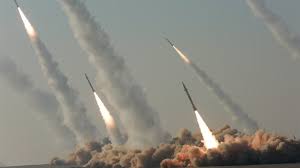Iran rejects imposing restrictions on its missile program and describes European measures as "illegal"

The Iranian National Security Council confirmed today, Tuesday, September 2, its refusal to accept any restrictions on the country's missile program, in response to a European position calling for the activation of what is known as the "snapback mechanism" to reinstate international sanctions.
The Iranian response came against the backdrop of the "European troika" informing the UN Security Council last week about the activation of the "fast return mechanism" for sanctions, which angered Tehran. According to the European statement, the activation of the mechanism is due to Iran's refusal to allow UN inspectors to return to three nuclear facilities, its failure to provide "accurate information about approximately 400 kg of uranium enriched to 60%", and its lack of engagement in "direct and constructive negotiations with Washington to reach a new nuclear agreement".
In response, the spokesman for the Iranian Parliament's National Security and Foreign Policy Committee, Ibrahim Raee, stated that "France is exceeding the nuclear dispute" and "wants to impose restrictions" on Iran's missile program, considering that the West's attempt aims to "strip Iran of its power". Raee added, in statements reported by the official "Tasnim" agency, that "the armed forces defend the country with strength and determination".
For its part, the French Foreign Ministry clarified that the decision to reactivate the "fast return mechanism for UN sanctions on Tehran is a message to the Iranian side". Ministry sources stated in remarks to "Al Arabiya" that the message behind the "snapback mechanism" is that "the Europeans wish to reach an appropriate exit", considering that "the activation of the snapback mechanism shows that diplomacy still has a place, as the sanctions will not take effect before the month-long deadline". It also expressed hope that "Iran will return to the negotiating table before this deadline expires".
It is worth noting that the Iranian Parliament had announced last August its rejection of what it described as "Western imposition policies" or abandoning the nuclear program. The nuclear agreement reached in 2015 between Iran and the Western powers included a process known as "reimposing sanctions" or the "snapback mechanism" that the UN can use against Tehran.